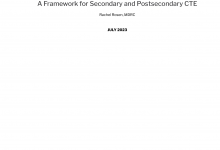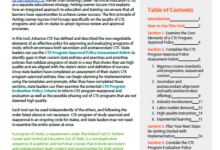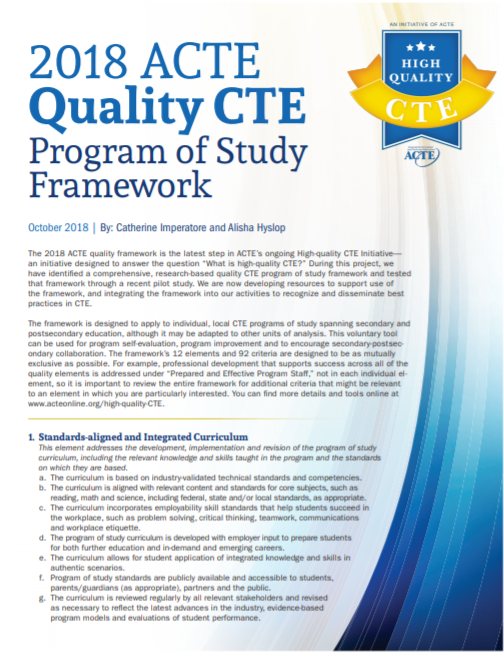As Career Technical Education (CTE) becomes an increasingly popular educational strategy to prepare students for career success, local administrators must consider how to improve program quality to ensure all learners can access meaningful CTE. Implementing programs of study — or educational pathways that integrate technical and academic instruction in a nonduplicative sequence of courses that span secondary and postsecondary education — is one strategy for delivering high-quality CTE programs.
This resource from the Association for Career and Technical Education (ACTE) builds upon the organization’s synthesis of contemporary perspectives on program quality to provide a research-based blueprint for designing and implementing strong programs of study. The framework can be applied to a single, local CTE program of study spanning secondary and postsecondary education and can be used for self-evaluation, program improvement and catalyzing partnerships. The quality criteria used in the framework include:
- Standards-aligned and Integrated Curriculum
- Sequencing and Articulation
- Student Assessment
- Prepared and Effective Program Staff
- Engaging Instruction
- Access and Equity
- Facilities and Equipment
- Business and Community Partnerships
- Career Development
- Career Technical Student Organizations (CTSO)s
- Work-based Learning
- Data and Program Improvement
This framework draws on ACTE’s 2015 report “Defining High-quality CTE: Contemporary Perspectives on CTE Quality.”






